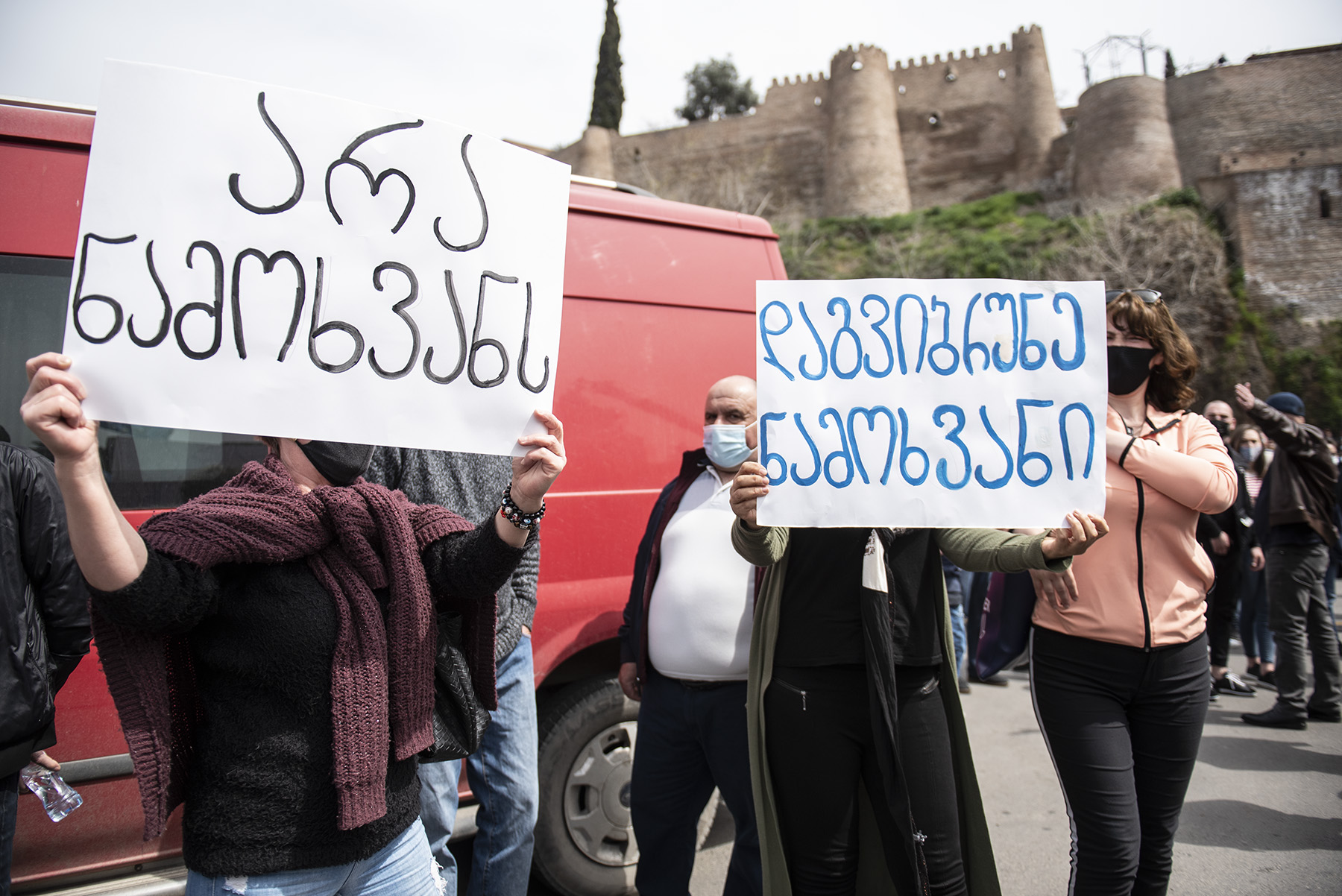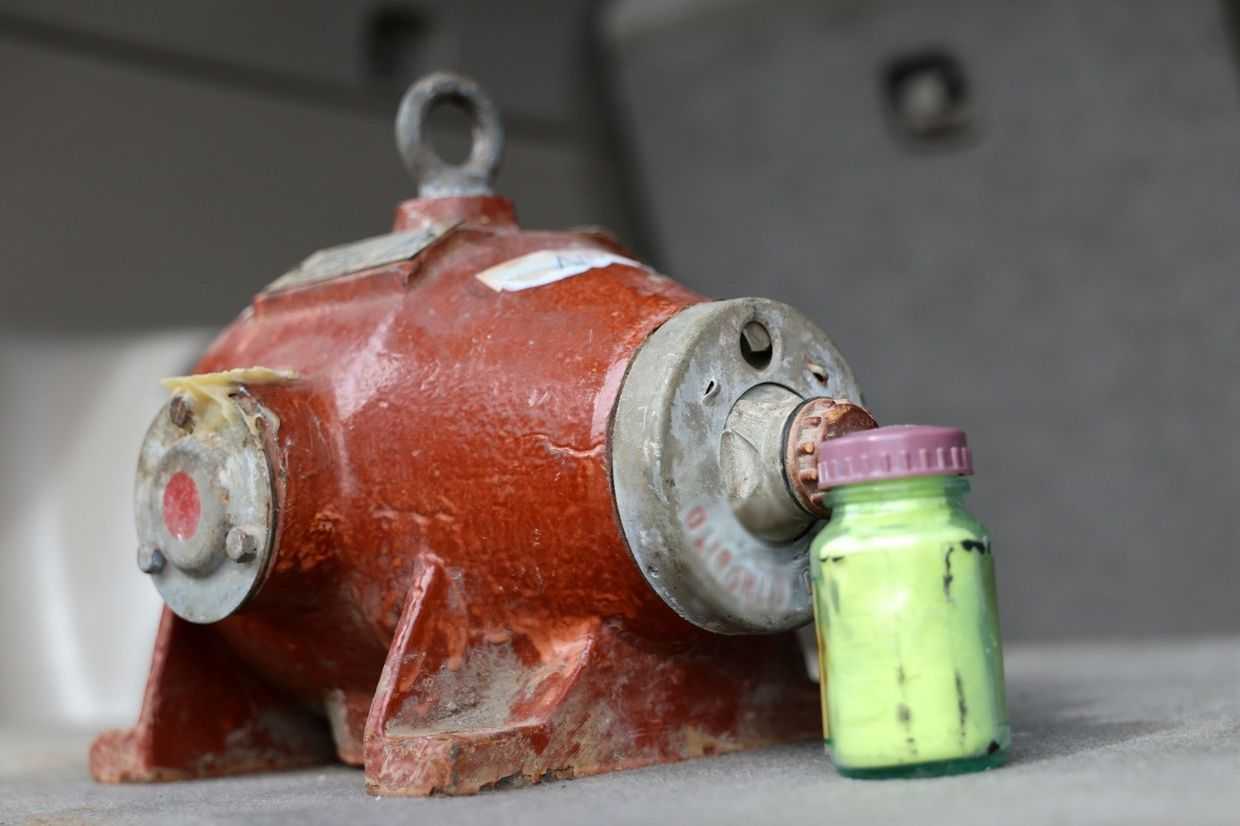
Thousands have gathered in Tbilisi for a protest organised by Gia ‘Utsnobi’ Gachechiladze, a former singer and prominent cultural figure.
The formal goal of the event was to establish ‘the Day of Eternity of Georgia and Georgian People’, which coincided with the anniversary of the violent dispersal of anti-USSR demonstrations by the Soviet army in Tbilisi in 1989.
However, in the run-up to the demonstration and during it, Gachechiladze offered only vague messages targeting liberal groups critical of the government as well as opposition groups, especially those associated with the formerly ruling United National Movement (UNM). He also praised Georgian traditions and the Georgian Orthodox Church.
Gachechiladze, who goes by the name Utsnobi (stranger), has been a prominent critic of the UNM since they were in power.
Gachechiladze led the crowds from Tbilisi’s Europe Square to Dedaena Park, stopping outside the Patriarchate of Georgia, the administration of the Georgian Orthodox Church where he praised 88-year-old Patriarch Ilia II later in a speech.
In his address to crowds at Europe Square, Gachechiladze claimed that Ilia II, along with Georgian institutions like family, hospitality, and history, were ‘under attack’.
The Patriarchate, which is frequently found to be the most trusted institution in Georgia opinion polls, have been mired in scandals in recent years, including internal conflicts and accusations of ‘sodomy’ levelled against Ilia II.
Gachechiladze also several times railed against the media. He condemned the ‘extremely destructive powers and the media outlets controlled by them’. He refused to give comments to journalists.
Many of the participants were also hostile towards journalists covering the demonstration. OC Media’s reporter was subject to a number of insults, including that she was ‘Satan’s servant’.


After his speech, Gachechiladze spray-painted ‘God is love’ on a fragment of the Berlin Wall gifted to Georgians by the German Government in 2017.
While announcing the demonstration in March, Gachechiladze targeted political groups currently boycotting parliament without explicitly concentrating on one particular party. He later dubbed them ‘political rubbish’ and demanded that the ruling Georgian Dream party ‘take them out’.
Gachechiladze also described the permanent tents of several anti-government groups outside parliament as ‘stinky and dirty’ and floated the idea of removing them.
Opposition-leaning Georgian TV channels Mtavari and Pirveli reported a number of organised efforts by municipal authorities in the regions to transport state employees to the Tbilisi demonstration.
Dozens of minibuses lined several streets close to the demonstration.
Who is Utsnobi?
Gachechiladze was among the loudest anti-government voices in the late 2000s, and was behind many popular pro-opposition TV shows and hit songs as well as street demonstrations.
In recent years, Gachechiladze has fallen from prominence but maintained an audience as an author at his namesake radio station, which also began broadcasting on TV after 2012.


Gachechiladze returned to the national spotlight in January after he admitted to relocating an opposition protest planned against former Georgian President Mikheil Saakashvili’s 2008 inauguration in exchange for a national TV station frequency.
Since late 2007, Saakashvili had struggled to retain power, especially after the violent dispersal of anti-government protests in Tbilisi on 7 November which forced him to announce the early presidential vote.
The violence on 7 November along with several other high-profile cases of human rights abuses by the government of the time led to a broad anti-Saakashvili movement forming.
This included Gia Gachechiladze’s brother, Levan Gachechiladze, who came second in the 2008 presidential election, which he claimed was rigged.











